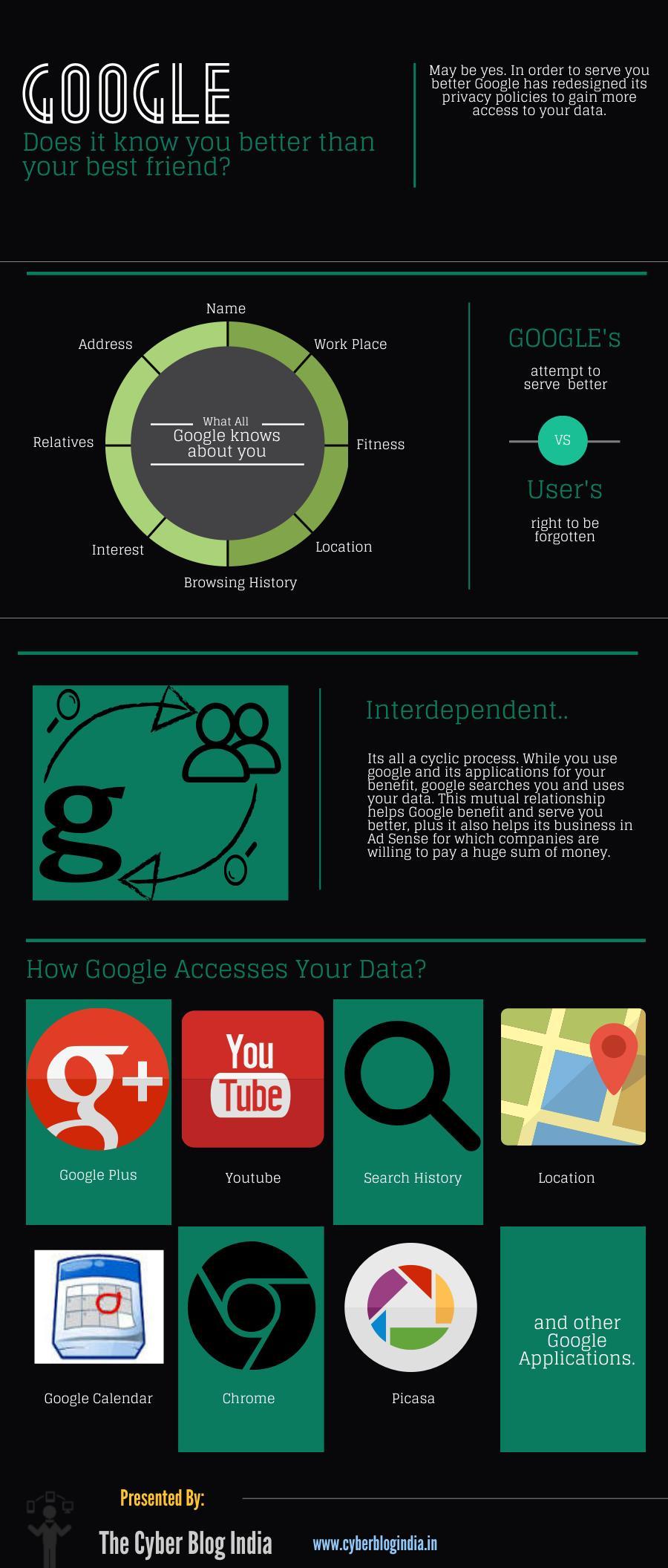Google Privacy Policy – Nuance between Good and Bad

Google Privacy Policy – Nuance between Good and Bad
In our everyday life it bemuses us if someone knows our name while we don’t know a thing about them. Ever wondered how it would be like if someone just knocked up at your door one day and goes on telling your name, address (obviously that’s where he is standing), work place, birthdate, your interests, music you listen too, videos you watched, sites you surfed, total number of your emails, last when you logged in, the no. of tabs open that time, your hobbies, your relatives and similar actions of their. No less than your bio data indeed.
Strange, isn’t it? Well Google does all that to you. While you search on Google, it searches and maintains data about you, provided you are logged in. It claims to do so in order to be able to serve you better. Google put forward a transparency tool called “Dashboard” in 2009. This gives you the entire data google has about you in a single window. In January 2012, google condensed down the various privacy policies it had for its various products (about 60) into a single privacy policy pretty much covering it all. This indirectly helped google get more access to your data. This was done for googles commercial benefit.
Sachin Pilot, Minister of State for Communications and Information Technology issued a statement explaining India’s current laws on privacy and the government’s stand on the issue. The important part:
- Rectification of conflict between Google, an US Company and European Directive on Data Protection is not within the purview of Government of India.
- The new Google Privacy Policy provides information to the end users as to how their personal information is collected, for which it is collected, processed and secure. The end users, however, need to fully understand the privacy policy of Google, the consequences of sharing their personal information and their privacy rights before they start using online services.
As explained in the statement, the 2011 amendment of the IT Act of 2000 directs companies to protect private information and clearly disclose their policies on how the information will be used. Google has done this and as such the government does not need to intervene. Google’s use and/or abuse of user information for targeting ads and knowing their users’ behaviour is not new, the government has better things to do than go after Google when nothing can be done. [i]
Google used this data to manage its Ad Sense better for which companies would willingly pay a huge amount of money. One can easily check the ad settings of their profile by logging in. Ad Settings shows your gender, age, interests which are used by companies for their profit.
In 2014, Verge studied the accuracy of Google profile and the results were way more than expected. Google could predict accurately to an extent of 50%. The “Ok Google” feature helps Google to maintain your voice patterns. Google uses gps activators to study your daily activities and keeps a track of your home, work place, kilometres you travelled in a day, your fitness level, your gym place based on the time you spend at these places. The Google Chrome helps it maintain the entire web browser history which gives it a better insight about who you are. Integration of Google in smart phones makes it all the more easier and accurate.
It is rightly said, what goes in the virtual world stays there. There is no way you can stop Google from tracking you around. While all this data is used by Google to serve people better and to improve their experience, this can often be creating problems for them. This led to Europe compelling Google to introduce the “Right to be forgotten,” about which we will discuss in detail in a blog soon coming up. It was noticed that people had more problem with Google keeping their data than any other person in real world.
There are definitely those ways of barring the use of google and its applications but then the question arises, at this height of an IT renaissance is it possible?
